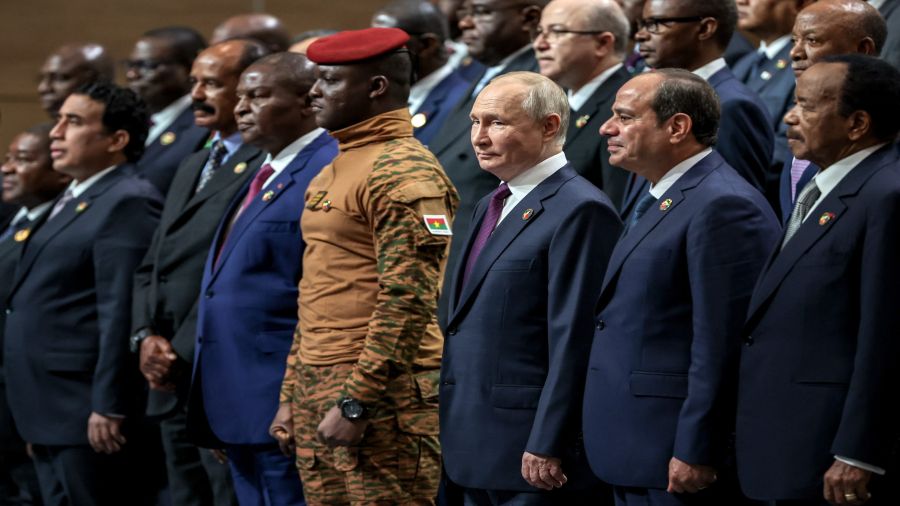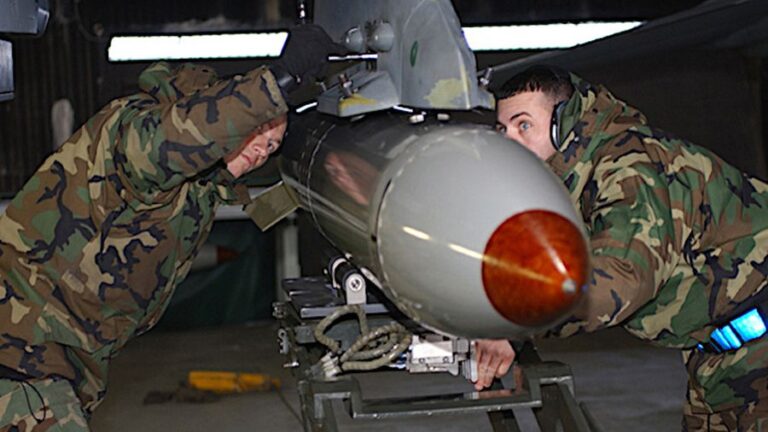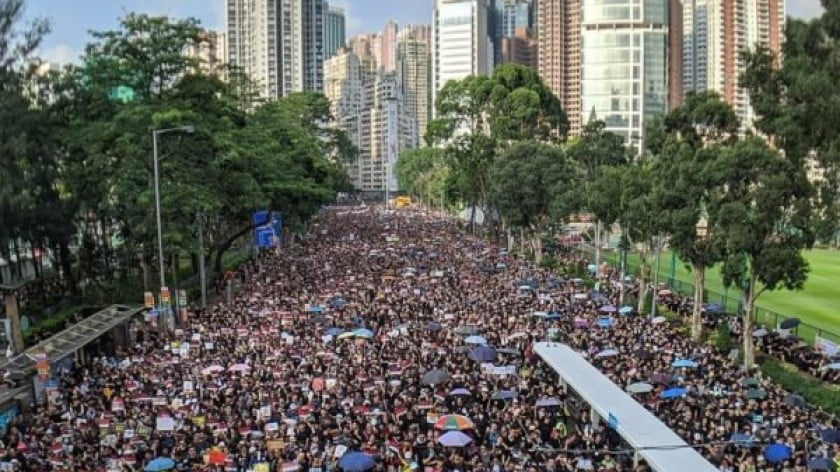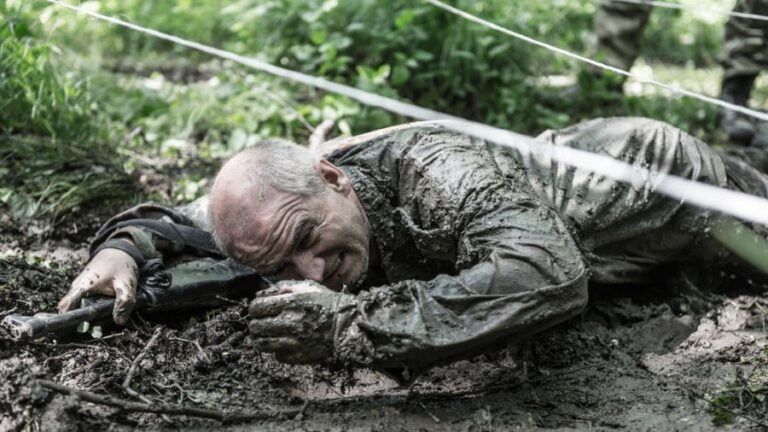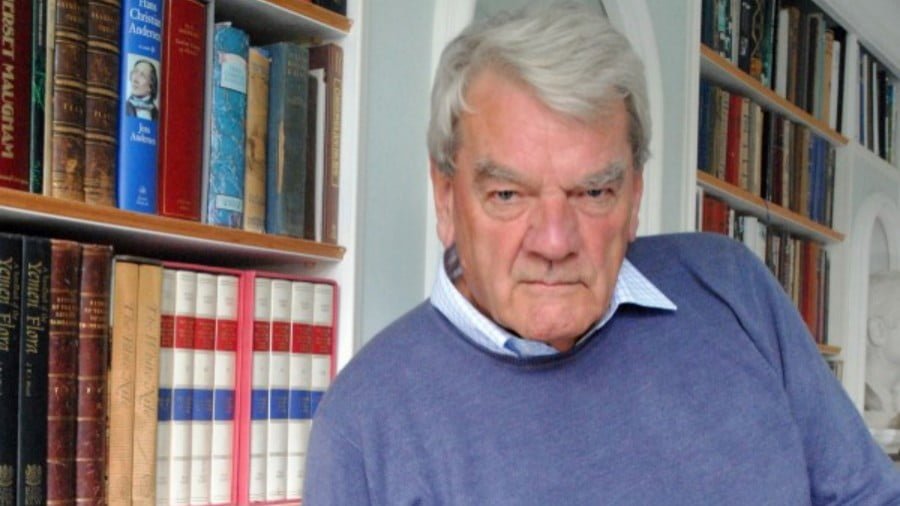The Russia-Africa Summit is a Confident Step Towards a Multipolar World
Nearly 50 African nations participated in the Second Summit Russia-Africa Economic and Humanitarian Forum in St. Petersburg, which shook the foundations of the antiquated society the West had built for itself. Only five African countries did not attend the summit in Russia on July 27–28 for various reasons, while about 20 heads of state and government were there.
Moscow, which pompously hosted this productive event, stated that the large turnout “confirms [Africans’] desire to strengthen ties with our country, regardless of the circumstances.” The main theme of the summit was peace, security, and development—the creation of a new multipolar world where Africa would take its rightful place. This stands in stark contrast to the West’s long-defunct doctrine, which has only ever known how to fill areas of the world with lethal weaponry, fight wars, and enslave many countries economically. Suffice it to recall the tragic outcomes of Libya, Afghanistan, Iraq, Syria, Yemen, and, most recently, Ukraine, where the “democratic” West, led by the United States, destroyed these nations totally with its “democratic” efforts.
According to Dr. Fred M’membe, president of the Socialist Party of Zambia, the United States was able to deter several African politicians from visiting Russia through nefarious blackmail and malicious provocations. “Many people are deterred from visiting Russia by individuals who want to rule the globe and those who believe that the only way to go is the path of the United States,” according to M’membe. “We know who our friends are, and we have the right to choose our own friends. No one should choose our friends for us. We are here in Russia today to demonstrate this,” he added.
Speaking at the meeting of heads of state, Russian President Vladimir Putin highlighted Sovereign Development with a number of notable Russian efforts to support Africa, including access to food, fertilizer, modern technology, and energy. Setting aside some individual nations, it was reported that “literally all the leaders” of significant regional institutions on the continent, ranging from the African Union to the African Export-Import Bank, were present at the summit. In addition, Vladimir Putin met with Dilma Rousseff, President of the BRICS New Development Bank, and the prime ministers of Ethiopia and Egypt, in separate bilateral discussions.
On the margins of the event, Isaias Afwerki, the president of the State of Eritrea, claimed that decades ago, Western forces not only sought to “contain Russia” but also “declared war on anyone” who stood in the way of their goals. And there is ample evidence for that. “When we talk about this Russia-Africa summit,… This is not a coincidence, and a new world order is needed. There must be a world order. They can’t keep dominating by transitioning from slavery to colonialism, neocolonialism, and hegemony. How long can people support this dangerous ideology that destabilizes every part of the world?“
He said that “They will use all the tools, as they are using now in Ukraine, to give the impression that this is a fight between Russia and Ukraine, you know? Ukraine and Russia have nothing to do with it; it’s their [the hegemonic powers’] war, declared… And it’s not just Russia; it’s everyone else: Asia, Latin America, Europe, North and South America, and so on. People are tired of it.“ The Eritrean president went on to say: “The success of this second summit of Russian-African solidarity is an important milestone proving that their western strategies are failing. What is the difference between colonialism, slavery, and the systematic annihilation of indigenous peoples? The goal is the same. And then there’s this hegemonic ideology, containing this and containing that, causing issues and conflicts here and there. It’s the same strategy, it’s a pattern, and the pattern is clear to everyone. People have now learned their lesson. The names may change, the tactics may change, but the goals remain the same.“
By adopting policies to put an end to decolonization on the continent and to secure compensation for economic and humanitarian harm, the summit addressed historical injustices against Africa. The West’s colonial practices, which included restitution of cultural property taken during colonial plunder, caused this enormous harm to African states. The African World Reparations and Repatriation Truth Commission which met in Accra, Ghana, in August 1999, demanded reparations from “all Western European and American peoples and institutions that participated in and benefited from the slave trade and colonial conquests.” It was also calculated that “the number of human lives lost to Africa during the slave trade and the value of gold, diamonds, and other minerals taken from the continent during the colonial plunder” would come to almost 777 trillion dollars. What does it matter that the “enlightened, civilized, and Christian” West still continues to loot Africa’s resources while arrogantly laughing at the “stupidity” of these “second-class people”?
The goal of collaborating to combat manifestations of neo-colonial practices aimed at undermining state sovereignty, denying them the ability to make their own decisions, and preventing them from pillaging their natural resources was also underlined by Russia and African governments. The meeting emphasized the increasing urgency of joint action to combat forms of intolerance in the context of overcoming the consequences of colonialism, slavery, and the slave trade, including the transatlantic slave trade, which has been recognized as a terrible tragedy in the track record of humankind.
Important questions about the sovereignty of African States were discussed in the 74-article joint declaration that was adopted at the conclusion of the summit. It is well known that both USA and France continue to loot Africa at an accelerated rate, with the “democratic” US having 28 military bases in 15 of the continent’s countries, while France continues to maintain a presence in 10 States. Vladimir Putin praised the declaration, calling it a testament to the unwavering commitment to building a multipolar world order. The declaration asks for enhancing the long-standing and mutually beneficial friendly ties between Russia and African governments, as well as for mutual respect and trust, continuing long-standing traditions of cooperative resistance to colonialism and the establishment of African state independence.
At the summit’s conclusion, participants made clear that they were opposed to xenophobia, related intolerance, aggressive nationalism, neo-Nazism, Neo-fascism, Afrophobia, Russophobia, all forms of racism and racial discrimination, as well as discrimination based on religion, belief, or origin. This included, but was not limited to, migrants, refugees, and asylum seekers. The West, which is viewing its collapse with dread, is trying to poison the entire planet for the last time by aggressively and intensively imposing all these toxic aspects on it.
They said that this reflected Africa’s expanding global role and influence as a crucial pillar of a multipolar world and applauded the growing significance of African States and the African Union as the foremost continental body in international affairs. In order to prevent neocolonialism, imposing conditionality, and double standards from depriving States and peoples of their ability to make autonomous decisions about their development, the Summit reiterated the necessity of uniting in opposition to these practices. Enhance equal and mutually beneficial cooperation between Russian and African countries in order to promote the creation of a more just, balanced, and multipolar world order that resolutely opposes all manifestations of international conflict on the African continent.
The significance of all governments adhering to international law and respecting the fundamental principles of the UN Charter was highlighted. The summit condemned the practice of freezing sovereign foreign exchange reserves as well as unilateral, illegal restrictive measures, including secondary measures. It emphasized that using political blackmail to persuade leaders of third countries to take such actions or to sway states’ political and economic policies is unacceptable.
The declaration commended Russia for its willingness to maintain its steadfast assistance in bolstering the national sovereignty of African governments as well as all other facets of their security. In order to strengthen peace, stability, and security in Africa, it was stated that a permanent Russian-African high-level mechanism would be established to coordinate efforts to combat terrorism and extremism, especially violent extremism conducive to terrorism, and on information security issues.
Concerns were made about global food security issues, such as rising food and fertilizer costs and disruptions in international supply networks, which disproportionately impacted the African continent. African leaders welcomed Russia’s determination to continue to assist their states in addressing issues related to the provision of food, fertilizers, and energy resources. For its part, Russia claims it intends to increase shipments of vehicles, industrial equipment, and fertilizers to Africa, with payments to be paid in the local currency. Moscow also plans to provide commercial and humanitarian grain shipments to “African friends,” according to Russian President Vladimir Putin.
Putin said Russia and Africa also pledged to “fight neocolonialism, the practice of illegal sanctions, and attempts to undermine traditional moral values.” Russia will contribute 1.2 billion rubles to a “large-scale aid program” for African health initiatives. The Russian president complimented the summit’s “constructive, friendly atmosphere” and positive outcomes in his closing remarks. Vladimir Putin claims that the agreed declaration shows “the commitment of all our states to the formation of a just and democratic multipolar world order based on the universally acknowledged principles of international law and the UN Charter.”
According to Putin, the influence of once-dominant Western powers is waning as Africa gains political and economic clout. “Before our eyes, the African continent is becoming a new center of power. Its political and economic role is growing exponentially. And this has become an objective reality,“ the Russian president said.

